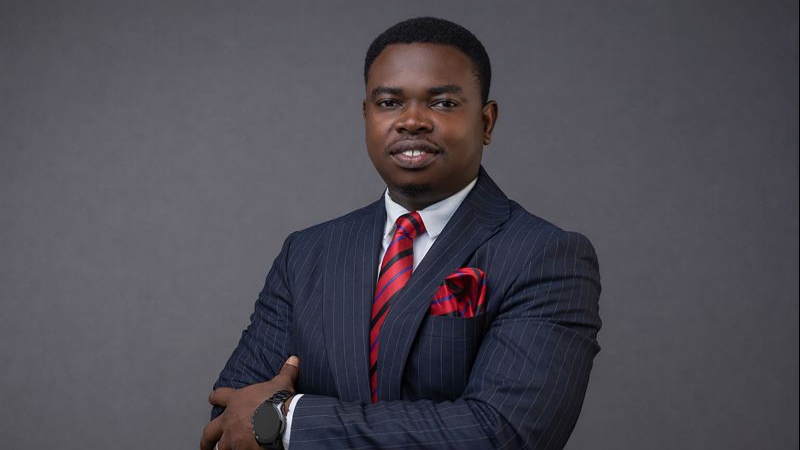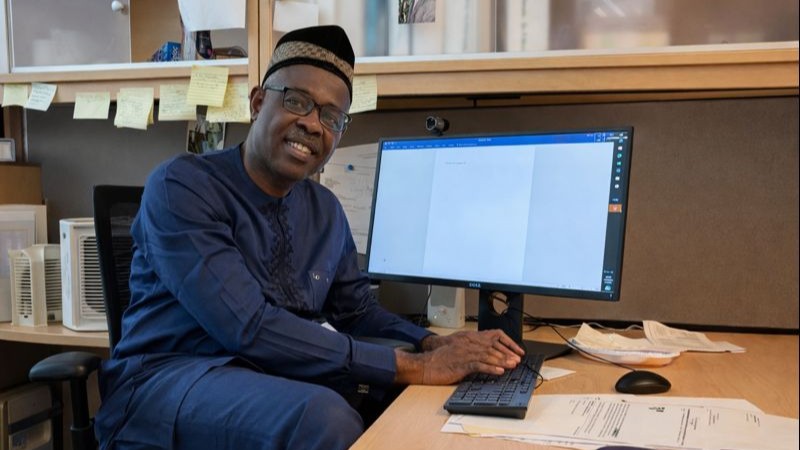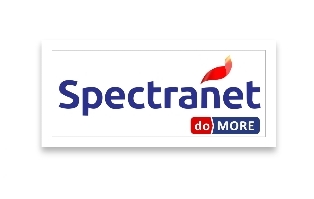
Spectranet in Nigeria symbolises possibility, transforming lives, businesses, communities, says Amrish Singhal
Spectranet, located on 36B, Mobolaji Johnson Avenue, Oregun Industrial Estate, Alausa, Ikeja, Lagos has been declared a company totally dedicated and committed to the growth and development of Nigeria.
The Chief Operating Officer (COO) of Spectranet, Mr Amrish Singhal, made the declaration in this commemorative interview, giving insight into the mission, vision and activities of his company.
The interview is part of The Guardian Newspaper’s Nigeria Independence Edition, tagged, Nigeria @ 65: Indigenous Nigerian Economic Strongholds Since 1960.
Since pioneering 4G LTE services in Nigeria, how has Spectranet influenced the nation’s ICT evolution and contributed to the growth of the digital economy?
Firstly, we would like to extend our warmest wishes on the 65th anniversary of Nigeria’s Independence Day to all Nigerians. From the entire Spectranet team, we celebrate the nation’s resilience, creativity, and bright future.
Since pioneering 4G LTE services in Nigeria, Spectranet has become a symbol of possibility, demonstrating that reliable, fast, and affordable internet-can-transform-lives, businesses, and communities. We haven’t just provided connectivity; we’ve empowered over 500 employees and millions of Nigerians.
By delivering high-speed internet, we’ve unlocked opportunities in education, commerce, innovation, and entertainment. Imagine students learning remotely, startups and SMEs selling, collaborating, and scaling globally. Families are closer, thanks to the digital bridges we’ve built with our LTE and Fibre services.
Whether you are on FTTH at home, running an enterprise on Spectranet Fibre, or using our mobile routers, our innovation solutions are both affordable and reliable. From Lagos to Abuja, Port Harcourt to Ibadan, Spectranet is making sure Nigerians stay fully connected, not just to the internet, but to the people and opportunities that matter most.
Our contribution to Nigeria’s digital economy extends beyond infrastructure. We are catalysts for digital inclusion, lowering barriers to internet access and actively supporting the growth of e-commerce, fintech, edtech, and the creative economy. Spectranet’s investment in technology and talent has created a ripple effect, fostering innovation hubs, generating jobs, and enhancing productivity, keeping Nigeria engaged in the global digital conversation.
As Nigeria reflects on its economic strongholds at 65, we take pride in knowing that connectivity has evolved from a luxury to a backbone of national growth. For us at Spectranet, the journey transcends megabytes and speed; it’s about powering dreams, bridging divides, and ensuring that every Nigerian, be it a student, entrepreneur, or family, can thrive in the digital age. Access to affordable and reliable internet remains a national priority.
What concrete initiatives or partnerships has Spectranet implemented to expand connectivity and reduce the digital divide across Nigeria?
At Spectranet, we believe that affordable and reliable internet is not a privilege, but a fundamental right and a driver of national progress. To this end, we have taken deliberate steps to expand access and close the digital divide.
Firstly, we have consistently invested in broadening our network coverage by deploying Fibre/4G LTE services in key urban and semi-urban areas. This ensures that more Nigerians in growing communities can connect to quality internet that is both accessible and affordable.
Secondly, affordability remains central to our mission. We have introduced flexible data plans, night browsing options, and our “Boost Your Data” initiatives, allowing families, students, and small businesses to maximise value. Whether on LTE or Fibre services, Spectranet delivers quality internet that fits every budget.
Thirdly, collaboration has been vital. We have partnered with educational institutions, tech hubs, and SMEs to provide broadband solutions that support learning, innovation, and entrepreneurship. In recent years, we’ve also collaborated with community organisations to offer digital literacy training on the International Day of Education, ensuring that connectivity is paired with the skills needed to use it effectively.
Through these efforts, we are not just selling internet; we are breaking barriers, democratising access, and enabling millions of Nigerians to participate meaningfully in the digital economy. Because when more people are connected, the entire nation moves forward.
With infrastructure challenges, rising costs, and fluctuating demand, how has Spectranet adapted its strategy to ensure resilience while continuing to deliver value to customers?
Everyone knows how challenging the economy is right now, rising costs, unstable infrastructure, and fluctuating demand affecting both businesses and households. But at Spectranet, our philosophy is simple: when challenges rise, we rise higher. We are committed to meeting demands every day.
We have adapted our strategy by focusing on three key pillars: resilience, innovation, and customer value.
Resilience: We continue to invest in infrastructure upgrades that ensure our network remains stable, even amidst power, logistics, and cost pressures. By building redundancies into our systems, we minimise disruptions for our customers, even in tough times. We are laying consistently optical fibres and investing in infrastructure to expand our fibre presence for homes and businesses.
Innovation: Rather than passing every cost burden onto our customers, we’ve developed flexible, budget-friendly plans that offer more for less. Initiatives like “Boost Your Data” stem from our empathy for families, students, and SMEs navigating today’s realities.
Customer Value: Beyond just providing internet access, we see ourselves as partners in growth. That’s why we’ve expanded customer support channels, introduced digital self-service tools, and created loyalty programmes to reward consistency.
The economic storm has tested us all, but it has also revealed what truly matters: trust. We strive every day to fulfil that trust. For us, resilience is not just about surviving difficulties; it’s about finding creative ways to keep Nigerians connected, inspired, and empowered, no matter the circumstances.
CSR plays a vital role in nation-building. Can you share some of Spectranet’s most impactful CSR programmes, particularly those that have advanced digital literacy, supported education, or empowered local communities?
At Spectranet, we view Corporate Social Responsibility not as an obligation, but as a commitment to empower the next generation. Connectivity without knowledge creates a gap; that’s why our CSR initiatives always combine access with empowerment.
On the International Day of Education, for instance, we hosted students from various schools and guided them through practical sessions on digital literacy, online safety, and the transformative power of technology for learning. The excitement in their eyes was clear evidence that when young people are given the right tools, they can envision and create a better future.
One of our key advocacies is to encourage not just internet consumption, but to leverage it as a platform for innovation, entrepreneurship, and self-development.
But our impact doesn’t stop in classrooms. Through our FTTH (Fibre-To-The-Home) and enterprise services, we’ve provided SMEs, entrepreneurs, and entire communities with reliable broadband that fuels innovation, drives business growth, and keeps families connected. From small businesses expanding their customer base online to startups leveraging high-speed internet for creativity and scale, our services have become enablers of opportunity.
Our vision is simple: to empower through knowledge. Whether it’s a student accessing global classrooms, an entrepreneur reaching new customers, or a family staying connected, our CSR efforts are about creating lasting opportunities.
And we’re not stopping here. We are committed to expanding these programmes, reaching more schools and communities, and fostering a culture where digital literacy is a right for all, not just a privilege for a few. At the heart of nation-building is education, and at the heart of education today is connectivity.
The ICT sector in Nigeria is highly competitive. What unique strengths or innovations distinguish Spectranet in this landscape, and how has the company sustained its leadership over the years?
In a sector as competitive as ICT, leadership is not claimed; it is earned daily through consistency, innovation, and trust. Today, we are both proud and humbled to be recognised as the number one Internet Service Provider in Nigeria.
At the core of our success lies a simple truth: we listen and innovate. We recently introduced a new device, TITAN, as part of our ongoing commitment to respond to customer feedback. Improving our customer service and response times remains a top priority, as their trust fuels our leadership.
This approach has allowed us to not only sustain our leadership but also redefine what it means to be more than just an ISP; we are a partner in Nigeria’s digital journey.
Three key aspects set us apart:
The Pioneering Spirit: As the first to launch 4G LTE services in Nigeria, our trailblazing mindset continues to drive us to lead, not follow.
Customer-Centric Innovation: From flexible data bundles and “Boost Your Data” bonuses to seamless self-service tools, our products are designed around the real lives and constraints of Nigerians.
Unwavering Commitment to Quality: Even amid economic pressures, we are dedicated to reinvesting in infrastructure, building redundancies for reliability, and maintaining high standards in customer service.
Looking ahead to the next decade, what are Spectranet’s key growth priorities in terms of customer reach, technology adoption, and market expansion? How will these priorities position the company to continue driving innovation and digital transformation in Nigeria?
We remain hopeful and undeterred by today’s challenges because we believe the future of Nigeria’s digital economy is bright, and we’re determined to be at the heart of it.
Looking ahead to the next decade, our growth priorities are built on clear pillars:
Customer Reach: We are committed to expanding our footprint beyond major urban centres to reach underserved and semi-urban communities. Every Nigerian deserves reliable internet, and we will continue to design solutions that make connectivity accessible to all.
Technology Adoption: The future belongs to those who innovate. That’s why we will invest in next-generation technologies that will power not just faster connections, but also smarter living, remote work, immersive education, and digital commerce at scale.
Market Expansion: Beyond connectivity, we envision Spectranet as a digital lifestyle enabler. This means venturing into value-added services, forming partnerships with fintech, edtech, and entertainment platforms, and building ecosystems where Nigerians can learn, earn, and thrive seamlessly.
These priorities are not just abstract ambitions; they are about creating a future where Nigeria is not only consuming digital products but also creating them where local talent is globally competitive and connectivity serves as a bridge to prosperity.
For us at Spectranet, the next decade will focus on driving digital transformation that empowers people, strengthens communities, and positions Nigeria as a true force in the global digital economy.
We are ready to DoMore with you, powering possibilities through our LTE, and Fibre services!
QUOTES (if needed)
Connectivity without knowledge creates a gap; that’s why our CSR initiatives always combine access with empowerment.
Our contribution to Nigeria’s digital economy extends beyond infrastructure. We are catalysts for digital inclusion, lowering barriers to internet access and actively supporting the growth of e-commerce, fintech, edtech, and the creative economy.
Every Nigerian deserves reliable internet, and we will continue to design solutions that make connectivity accessible to all.
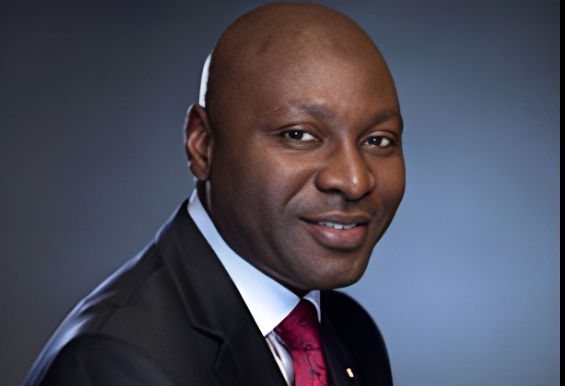
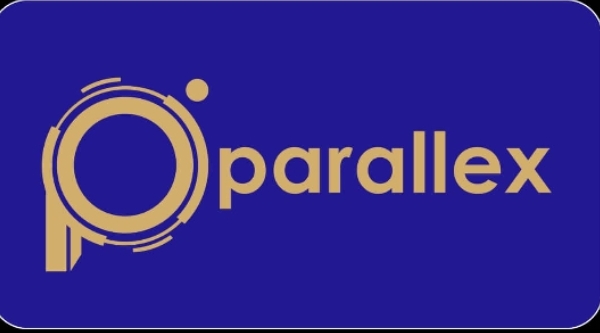
Parallex Bank: A bank driven by unique vision for Nigeria
Parallex Bank Limited was established as a limited liability company on May 22, 2020, following its successful transformation from Parallex Microfinance Bank, a national microfinance bank initially incorporated in 2008 as a Unit MFB. This significant transition marked a pioneering milestone in the Nigerian banking sector, making it the first to achieve such a feat, licensed by the Central Bank of Nigeria (CBN).
That was just the very first; many other firsts followed. Also, Parallex Bank emerged as the first bank to offer Nigerians five free daily transfers and five free transfers on their birthdays.
The bank also became the first to introduce free debit cards with complimentary delivery to customer-preferred locations.
Not stopping at those, Parallex Bank became the first to enable customers to personalise 10-digit account numbers, fostering inclusivity and flexibility, among other innovations.
Meet the man with the Midas touch
Dr Olufemi Bakre is the Managing Director and CEO of Parallex Bank Ltd, where he leads the bank’s strategic vision to redefine value-driven, innovation-led banking in Nigeria.
With over 30 years of experience in commercial and investment banking, Dr Bakre brings a wealth of expertise in corporate finance, risk management, and digital transformation. Under his leadership, Parallex Bank became the first Nigerian microfinance bank to successfully transition into a full-fledged commercial bank, an industry milestone.
He has championed a strong focus on investor value, operational efficiency, and scalable growth across key sectors. Dr Bakre holds a Doctorate in Credit Management and is a Fellow of the Chartered Institute of Bankers of Nigeria (CIBN). His forward-thinking approach positions Parallex Bank as a strong and agile player in Nigeria’s evolving financial landscape.
He reveals more about what makes Parallex Bank tick in the special and exclusive interview he granted The Guardian.
THE INTERVIEW
Supporting SMEs central to Parallex Bank’s commitment to impacting Nigeria’s economy, says CEO, Olufemi Bakare
The Managing Director and Chief Executive Officer (CEO) of Parallex Bank Ltd, Dr Olufemi Bakre, has said the bank is driven by, among others, the cardinal objective to impact positively on Nigeria’s economy and, by extension, on the well-being and prosperity of its citizens.
He says that is why the bank is committed to supporting small and medium-sized enterprises (SMEs), which form the backbone of the Nigerian economy. Beyond supporting SMEs, he lists other strategies the bank has adopted to sustain and grow its vision, in the Independence Anniversary interview with The Guardian.
As a significant contributor to Nigeria’s economy, what strategies does Parallex Bank employ to sustain and grow its economic impact?
Parallex Bank has adopted a multifaceted approach to sustain and enhance its economic impact in Nigeria. Central to this is our commitment to supporting small and medium-sized enterprises (SMEs), which form the backbone of the Nigerian economy. By providing tailored financial products, flexible credit facilities, and capacity-building programmes, we empower businesses to thrive and create jobs.
Additionally, we focus on technological innovation to streamline banking processes, improve access, and boost efficiency. Our strategic partnerships with government agencies and development organisations also enable us to participate actively in national economic initiatives, ensuring our growth aligns with Nigeria’s broader economic goals.
What specific initiatives has Parallex Bank implemented to increase financial inclusion in Nigeria?
Financial inclusion is a cornerstone of Parallex Bank’s mission. We have launched multiple initiatives aimed at bringing unbanked and underbanked populations into the formal financial system. These include agent banking networks that extend our reach into rural and underserved communities, mobile banking platforms that enable secure and convenient transactions, and customised savings and loan products designed for low-income earners and micro-entrepreneurs.
Furthermore, our financial literacy campaigns educate Nigerians on the benefits of formal banking, helping to foster trust and encourage uptake. Through these efforts, Parallex Bank is closing the gap and promoting inclusive economic participation.
How has Parallex Bank established itself as a leader in digital banking, and what are its plans to improve its digital offerings?
Parallex Bank has positioned itself at the forefront of digital banking by investing heavily in cutting-edge technology and customer-centric digital solutions. Our robust online and mobile banking platforms offer seamless, secure, and 24/7 access to banking services, reducing the need for physical branch visits and improving customer convenience.
We have also embraced emerging technologies such as AI-driven customer support and data analytics to enhance user experience and personalise services. Moving forward, we plan to expand our digital ecosystem by integrating more advanced features such as biometric authentication, open banking APIs, and enhanced cybersecurity measures to provide Nigerians with safe, innovative, and efficient banking solutions.
Can you share some of Parallex Bank’s most impactful CSR initiatives and how they reflect your commitment to Nigeria’s development?
Parallex Bank is deeply committed to corporate social responsibility that drives sustainable development in Nigeria. Among our impactful initiatives is the Parallex Education Fund, which provides scholarships and learning resources to underprivileged students. We also run healthcare outreach programmes that deliver essential medical services and awareness campaigns in rural communities.
Environmental sustainability is another focus area, with tree-planting projects and waste management partnerships helping to protect Nigeria’s natural resources. These CSR efforts reflect our belief that true economic progress must be inclusive and holistic, benefiting society as a whole.
Looking ahead, what are the key strategic priorities for Parallex Bank in the coming years, and how do you plan to support Nigeria’s economic growth further?
Looking to the future, Parallex Bank’s strategic priorities include deepening financial inclusion, accelerating digital transformation, and expanding support for SMEs and key economic sectors, such as agriculture, health, logistics and technology. We aim to leverage data-driven insights to create more customised products that meet evolving customer needs.
Strengthening partnerships with fintech innovators and regulatory bodies will also be crucial to fostering an enabling environment for growth. Ultimately, our goal is to be a catalyst for Nigeria’s economic development by providing accessible, innovative, and sustainable financial solutions that empower individuals and businesses to achieve their full potential.

The Alternative Bank proves that finance in Africa can be inclusive, innovative, ethical, says Fatai Tella
 It is exciting, it is novel, it is a welcome development, and it is widely gaining acceptance. It is non-interest banking, a model where the bank’s returns are tied to real economic activity, rather than fixed interest charges. Below are some of the qualities that make The Alternative Bank stand out in the banking sector.
It is exciting, it is novel, it is a welcome development, and it is widely gaining acceptance. It is non-interest banking, a model where the bank’s returns are tied to real economic activity, rather than fixed interest charges. Below are some of the qualities that make The Alternative Bank stand out in the banking sector.
The Chief Operating Officer of The Alternative Bank, Fatai Tella, reveals the facts about the bank and its activities in this interview he granted to The Guardian to commemorate Nigeria’s 65th Independence Day anniversary.
As the Chief Operating Officer at The Alternative Bank, how do you promote leadership in a way that strengthens the bank’s non-interest banking model and aligns with long-term business goals? But first, what is a non-banking model?
Non-interest banking is a model where the bank’s returns are tied to real economic activity, good or bad, rather than fixed interest charges. Instead of earning money from the interests placed on loans, we actively participate in trade, leasing, and profit-sharing across the initiatives we back. This model is transparent and fairer to customers. It allows finance to become a tool for wealth creation, not just wealth extraction.
Think of it like this: When we finance your project, we are interested in it being a success. So, we will provide you with all the support you need to scale, because without you being successful, we don’t become successful either.
Hence, at The Alternative Bank, leadership means embedding this philosophy into everything we do. We constantly ask: Does this decision build real value for the customer, the Bank, and society at large? Two examples illustrate this. AltMall is our digital marketplace where customers can purchase goods in instalments at 0 per cent interest.
A young professional, for instance, might buy a laptop needed for work. Instead of taking an interest-bearing loan, the bank buys the laptop and sells it to the customer in agreed instalments. The customer pays transparently over time, and the bank earns a fair markup from the transaction. It’s practical, affordable, and builds trust because there are no hidden charges.
Similarly, AltPower helps households and small businesses transition to solar energy. Instead of asking customers to borrow at high interest, we finance the solar panels and structure repayments as affordable lease payments.
The customer gets immediate access to reliable power, while the bank earns from the use of the asset. In the long run, this approach supports both economic growth and environmental sustainability.
As a leader, my role is to ensure this model is not just a technical offering but a living culture. By aligning people, processes, and strategy around such solutions, we prove that non-interest banking is both principled and profitable, a model designed for long-term value creation in Nigeria’s economy.
What key leadership principles guide your decision-making at The Alternative Bank, and how do you ensure non-interest practices are upheld consistently across the organisation?
My leadership rests on three principles: integrity, partnership, and innovation with discipline. Integrity means every decision must be transparent and aligned with our non-interest values.
Partnership means treating customers as co-creators of value, not simply borrowers. Innovation with discipline means using technology and creativity to solve problems without compromising our model.
Consistency requires structure. We operate under the oversight of our Advisory Committee of Experts, who review all products and processes for compliance. However, governance alone is not enough, we’ve worked hard to build a culture where every employee understands why we operate differently.
New hires go through induction programmes where they learn our philosophy, and existing staff attend workshops and scenario-based training.
For example, our relationship managers are trained to structure financing through asset-backed arrangements, like Murabaha or leasing, rather than traditional loans. Our compliance teams conduct regular audits to ensure these practices are followed.
Leadership also means modelling the behaviour you expect. I openly share the reasoning behind decisions with staff, so they see how principles are applied in practice. By combining governance, culture, and education, we’ve built an organisation where non-interest banking is second nature.
Can you describe a situation where the bank had to make a tough decision about its non-interest banking operations? How was the decision reached, and what was the outcome?
One of the most significant decisions we’ve faced was in supporting a large cocoa processor that needed financing to secure its primary raw material. Cocoa beans are the heart of their operations, but inadequate funding was threatening production and growth.
Conventional banks might have provided a loan with interest, but for us, the challenge was how to structure a solution that aligned with our non-interest principles while still meeting the scale of their need.
We approached this through a Murabaha arrangement. Rather than lending cash, The Alternative Bank paid suppliers directly for the cocoa beans, and the client repaid us under a pre-agreed markup.
This structure tied funds strictly to real economic activity, offered predictability to the client, and avoided hidden charges or compounding interest. It also meant that both sides shared responsibility for ensuring the business succeeded.
The impact was transformative. The company was able to expand its operations significantly, even acquiring additional cocoa processing plants. Beyond the balance sheet, this expansion created jobs, stimulated local economies, and promoted sustainable cocoa farming practices.
It also enhanced Nigeria’s credibility on the global stage by ensuring the production of cocoa derivatives that meet international standards.
For us, the lesson was clear: non-interest banking is not a limitation. With creativity and discipline, it becomes a tool to unlock industries that drive national development. That decision underscored our belief that finance, when properly structured, can power both profitability and purpose.
What accountability measures does The Alternative Bank have in place, and how do you equip staff to uphold the bank’s values?
Accountability begins with clear structures. Our Advisory Committee of Experts ensures every product meets non-interest principles. Beyond that, our compliance and audit teams conduct regular checks on daily operations, ensuring there are no deviations. Staff performance reviews include metrics on values, so promotions and rewards are tied not just to financial results but also to ethical behaviour.
We also empower staff to hold the organisation accountable. We maintain whistleblowing channels where employees can raise concerns anonymously, and we’ve built a culture where integrity is celebrated. When someone flags a potential misstep, leadership treats it as a learning opportunity, not an inconvenience.
Capability building is just as important. We invest heavily in training, from induction programmes to professional certifications in non-interest finance and other relevant areas that can help elevate individual and team performance.
Employees are equipped not only with technical knowledge but also with the language to explain our model confidently to customers.
By combining robust accountability systems with ongoing capacity building, we ensure our people are not just compliant but committed. That combination is what sustains our culture of integrity across the organisation.
In a competitive market, how does The Alternative Bank balance its commitment to non-interest banking with the need for innovation and profitability?
One misconception is that non-interest banking limits growth. In reality, it forces us to be more innovative because we cannot rely on interest income. We compete by offering distinct solutions that solve real needs.
Let me delve into two initiatives that illustrate this beautifully: WasteBanc and our Alfalfa initiative. We introduced WasteBanc as a model to turn an environmental challenge into a financial opportunity. Under this initiative, customers deposit recyclable waste, plastics, metals, etc., and in return receive credits in their accounts.
Rather than treating waste as a liability, we monetise it as a resource. It reinforces circular economy principles, supports community cleanup efforts, and builds customer engagement.
On the banking side, this feeds into our income via the trading, aggregation, and value-add processes tied to the recyclables, all structured in permissible, ethical ways.
Turning to Alfalfa, executed in partnership with Plateau State University and under our Corporate Social Investment arm, The Alternative Bank initiated a pilot Alfalfa cultivation program to support Nigeria’s livestock value chain. This crop is a high-protein forage ideal for feed that can bring economic returns for individuals and governments at scale.
Our trials in Plateau showed promising results, with germination rates exceeding 85 per cent within two weeks, plants reaching heights of about 66.5 cm in 13 weeks, and projected biomass yields of 18 to 20 tons per hectare under rain-fed conditions.
Rather than remain purely academic, we handed over the project to PLASU in mid-2025, equipping them with infrastructure and ongoing support, so that the university becomes a hub for scaling and research. The goal is to transform feed production, reduce feed costs, improve livestock yields, and even address pastoral migration and farmer–herder tensions in the region.
These two initiatives demonstrate how non-interest banking doesn’t mean staying in your comfort zone. It means entering high-impact, underserved spaces and designing bespoke solutions.
With our flexible, alternative model, we attract new customer segments, broaden our impact, and generate sustainable income in permissible ways. Over time, those income streams and the trust they build help us grow without ever compromising our principles.
How does The Alternative Bank’s approach to leadership and non-interest banking influence its relationships with customers, investors, and the wider community?
Our model has strengthened relationships across the board. Customers see us as partners, not lenders. They know we succeed when they succeed, which builds deep loyalty. Many customers who avoided banking in the past, for cultural or religious reasons, now see us as a bank that respects their values.
For investors, our approach aligns with the global shift toward ethical and sustainable finance. They see a bank generating returns from real economic activities rather than speculative instruments. That positions us as a stable and attractive partner for impact investors and development finance institutions.
In the wider community, our initiatives reinforce trust. Campaigns, like the Walk4ZeroPlastic where we mobilise volunteers to tackle plastic pollution and our partnership with institutions like the Nigerian Commodity Exchange to provide warehousing finance solutions to local farmers, show that we are investing in Nigeria’s future beyond banking. Supporting farmers, entrepreneurs, and renewable energy projects has made us a partner in development in the real sense.
By consistently combining integrity, innovation, and social impact, we’ve created a reputation that strengthens our stakeholder relationships and sets us apart in the industry.
Looking ahead, what initiatives or plans does The Alternative Bank have to further strengthen its leadership in non-interest banking?
The future is about scale, innovation, and regional leadership. We are expanding our AltBoxes across Nigeria, embedding banking into the daily lives of entrepreneurs and small businesses. Digitally, we are upgrading our platforms to make our services more seamless and accessible.
We’re also preparing to launch new green finance initiatives, including products for affordable, eco-friendly housing and renewable energy. Our WasteBanc model will be scaled to promote the circular economy at a national level.
Regionally, we are building partnerships with banks across Africa, sharing our expertise and positioning The Alternative Bank as a continental reference point for non-interest banking.
Our vision is clear: to prove that finance in Africa can be inclusive, innovative, and ethical. The Alternative Bank will lead this transformation.



